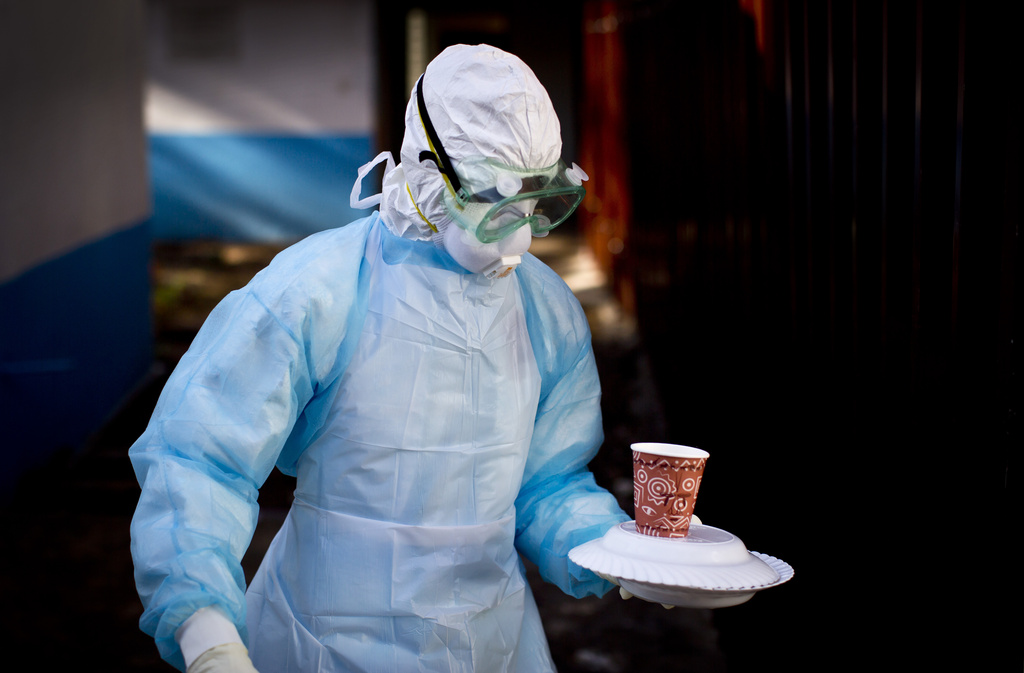Rwanda says eight people have died so far from the Ebola-like and highly contagious Marburg virus, just days after the country declared an outbreak of the deadly hemorrhagic fever that has no authorized vaccine or treatment.
Like Ebola, the Marburg virus originates in fruit bats and spreads between people through close contact with the bodily fluids of infected individuals or with surfaces, such as contaminated bed sheets. Without treatment, Marburg can be fatal in up to 88% of people who fall ill with the disease.
Rwanda, a landlocked country in central Africa, declared an outbreak on Friday and a day later the first six deaths were reported.
So far 26 cases have been confirmed, and eight of the sickened people have died, Health Minister Sabin Nsanzimana said on Sunday night.
The public has been urged to avoid physical contact to help curb the spread. Some 300 people who came into contact with those confirmed to have the virus have also been identified, and an unspecified number of them have been put in isolation facilities.
Most of the affected are healthcare workers across six out of 30 districts in the country.
“Marburg is a rare disease,” Nsanzimana told journalists. “We are intensifying contact tracing and testing to help stop the spread.”
The minister said the source of the disease has not been determined yet. A person infected with the virus can take between three days and three weeks to show symptoms, he added.
Symptoms include fever, muscle pains, diarrhea, vomiting and, in some cases, death through extreme blood loss.
The World Health Organization was scaling up its support and will work with Rwandan authorities to help stop the spread, WHO’s Director-General Tedros Adhanom Ghebreyesus said on Saturday on the social media platform X.
The U.S Embassy in Rwanda’s capital of Kigali has urged its staff to work remotely and avoid visiting offices.
Marburg outbreaks and individual cases have in the past been recorded in Tanzania, Equatorial Guinea, Angola, Congo, Kenya, South Africa, Uganda and Ghana, according to the WHO.
The rare virus was first identified in 1967 after it caused simultaneous outbreaks of disease in laboratories in Marburg, Germany, and Belgrade, Serbia. Seven people died who were exposed to the virus while conducting research on monkeys.
Separately, Rwanda has so far reported six cases of mpox, a disease caused by a virus related to smallpox but that typically causes milder symptoms. Mpox, previously known as monkeypox because it was first seen in research monkeys, has also affected several other African countries in what the WHO has called a global health emergency.
Rwanda launched an mpox vaccination campaign earlier this month, and more vaccines are expected to arrive in the country. Neighboring Congo has so far reported most of the cases of mpox, the epicenter of the emergency.
(AP)












One Response
‘Fear-bola’ mongering by the UN and pharma to line their pockets and put the populace in danger.
Ebola is caused by a virus and the main thing viruses do is deplete vitamin A. Vitamin A-rich foods such as liver, grass-fed butter, and cod liver oil—or even just vitamin A capsules—should serve as the basis of prevention and treatment. Vitamin D, vitamin K, vitamin C, zinc and even LDL-cholesterol play a role in helping the body fight infection. An interesting article by Bill Sardi points out that the major drugs given to Ebola patients deplete one or more of these critical nutrients. Acetaminophen—sometimes up to three grams daily—given to Ebola patients depletes the body of glutathione and indirectly of vitamin C as this nutrient is required to maintain glutathione levels. Antibiotics such as amoxycillin, ciprofloxacin (Cipro) and ceftriaxone (Rocephin) deplete vitamin K. Anti-malaria drugs such as quinine also deplete vitamin K (and increase death rates up to 100 percent).
As Sardi points out, vitamin D (and vitamin A) pills cost pennies, yet they are not offered to Ebola patients. (westonaprice.org/fear-bola; also, see Dr. Joseph Mercola’s: ‘The Great Bird Flu Hoax: The Truth They Don’t Want You to Know About the “Next Big Pandemic”).